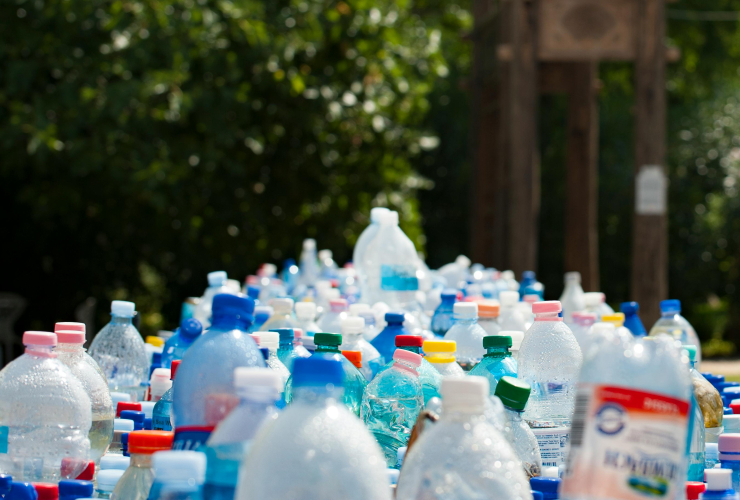The latest round of negotiations for an international treaty on plastic pollution (INC-4) have officially concluded in Ottawa. We saw frontline experts and communities use creative and candid means to drive ambition, while industry lobbyists flocked to weaken it.
Negotiators worked on areas of disagreement, but the most important issues still need to be decided in the final round of the treaty in November. Will the world agree to limit plastic production and protect health and justice, or will industry lobbyists get their way?
For decades, Plastics companies have been greenwashing. their exit from significant shares while benefiting from the increasing production of plastics. Despite marketing plastics as recyclable, the reality is more than 90 percent plastic It ends up in landfills and incinerators, parks and public spaces, waterways and oceans, and even the human body.
He March 2022 UN Environment Assembly voted to adopt a global, legally binding treaty on plastics to address the toxic risks of plastic pollution.
Decades of scientific research have demonstrated the toxic impact of plastic chemicals. throughout its life cycle. A new study has identified more than 16,000 chemicals are used in plastics, and one in four of them have been linked to exposure-related illnesses, such as cancers, endocrine disruption and reproductive damage.
The decomposition of plastics also produces microscopic pieces – microplastics – that have been found in the placenta, lungs, liver, breast milk, urine and blood. Research has linked these microplastics to inflammation, neurological disorders and even cardiovascular disease.
The adverse health consequences of plastic pollution are already costing governments thousands of millions in health care.
While the Canadian government has begun working nationally to address plastic pollution, we need it to lead by example in this international push and help define the ambition of the coalition of nations that want toxic additives removed from plastics.
This coalition must respect human rights, limit plastic production, eliminate unnecessary plastic products, prioritize the ban of dangerous chemicals and ensure that companies respect the right to a clean, healthy and sustainable environment. They will also have to face the Plastics industry’s efforts to undermine strong treaty and their claims that voluntary tools are somehow more effective than legally binding ones.
With 460 million tonnes of plastic generated each year, we need a global solution to combat plastic pollution, write Lyndia Dernis @CAPE_ACME, Cassie Barker @cassie_barker @envirodefence and George Kitching #PlasticsTreaty #INC4 #cdnpoli
With 460 million tonnes of new plastic generated each year and production increasing, it is clear that we need a global solution to combat plastic pollution that starts with limits on production.
As a physician with the Canadian Association of Physicians for the Environment (CAPE) and program director at Environmental Defense, we are just two of the millions of voices pushing for regulatory action on plastics. Agreeing on a global treaty is essential due to the international nature of plastics manufacturing, distribution and pollution.
Canada can lead the way toward an ambitious, legally binding tool that not only addresses plastic production and pollution, but also restricts toxic chemicals in plastics. ‘
We demand an equitable treaty that centers human health and environmental justice, including Indigenous knowledge and consent.
We also hope that Canada seizes this unique opportunity to address the overwhelming adverse effects of toxic plastics on human health and society.
We need Canada to live up to its commitments to adopt national measures on plastics, measures that will protect the health of both its citizens and the environment.
Dr. Lyndia Dernis is a physician with the Canadian Association of Physicians for the Environment (CAPE).
Cassie Barker is program director at Environmental Defense.
Dr George Kitching is a family doctor who locums in several family medicine clinics in the Kingston area and holds the position of Associate Professor at Queen’s University.

